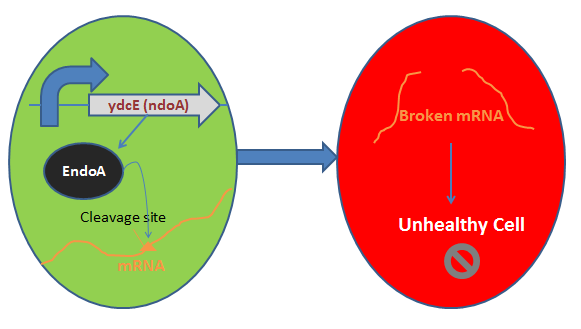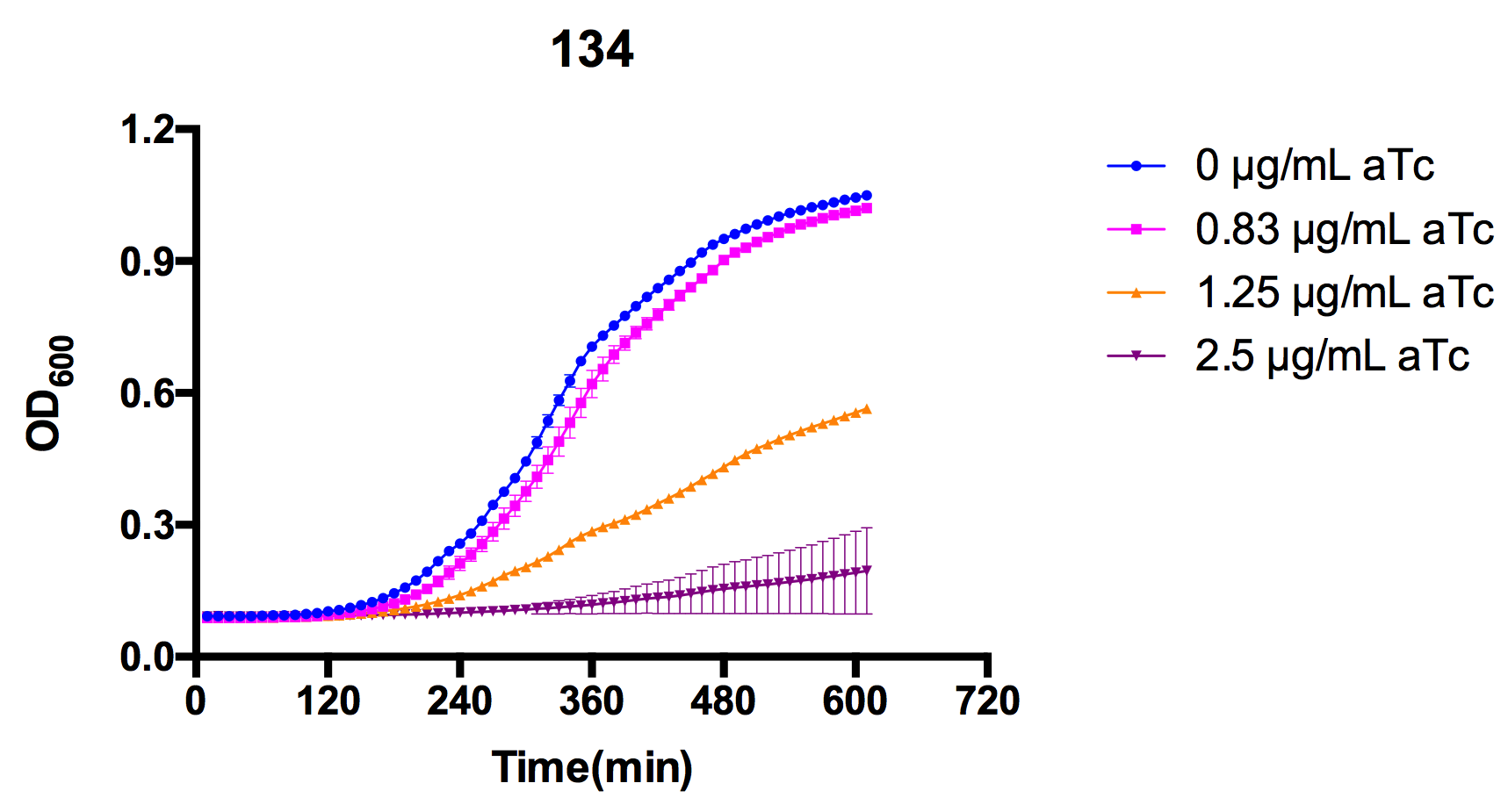Difference between revisions of "Part:BBa K733004"
| (One intermediate revision by the same user not shown) | |||
| Line 16: | Line 16: | ||
From the graph above we see that toxin is induced by graded anhydrotetracycline. It shows significant toxicity when induced 1.25 and 2.5µg/mL of aTc is added. | From the graph above we see that toxin is induced by graded anhydrotetracycline. It shows significant toxicity when induced 1.25 and 2.5µg/mL of aTc is added. | ||
| + | |||
| + | We also performed morphological analysis of E. coli expressing EndoA by SEM, and we found that the bacteria change from rod-like shape to sphere-like shape. | ||
| + | |||
| + | [[Image:T--UCAS--1204sem.png|500px]] | ||
| + | |||
<!-- Add more about the biology of this part here | <!-- Add more about the biology of this part here | ||
===Usage and Biology=== | ===Usage and Biology=== | ||
Latest revision as of 02:31, 20 October 2016
RBS+ydcE
ydcE which is also named as ndoA, encoding an RNase, namely EndoA. Being in the same RNase family with MazF/ChpAK/PemK, YdcE - the endoribonuclease ydcE encodes - can inactivate cellular mRNAs by cleaving them at specific but frequently occurring sites (i.e. UAUAAU↓AC). Thus, overexpression of EndoA can lead to programmed cell death or unhealthy conditions, depending on the amount of EndoA. Note that ydcE(ndoA) is demonstrated functional both in E. coli and B. subtilis. (Pellegrini et al., 2005)
Characterization by UCAS iGEM 2016 team
This summer we used the ydcD and ydcE genes to build a kill-switch. By measuring the growth curve of E. coli expressing toxin, we showed that toxin EndoA can effectively impede the growth and cleavage of E. coli.
We also characterized antitoxin ydcD, and documented the interaction between toxin and antitoxin on the page: BBa_K733003
From the graph above we see that toxin is induced by graded anhydrotetracycline. It shows significant toxicity when induced 1.25 and 2.5µg/mL of aTc is added.
We also performed morphological analysis of E. coli expressing EndoA by SEM, and we found that the bacteria change from rod-like shape to sphere-like shape.
Sequence and Features
- 10COMPATIBLE WITH RFC[10]
- 12COMPATIBLE WITH RFC[12]
- 21COMPATIBLE WITH RFC[21]
- 23COMPATIBLE WITH RFC[23]
- 25COMPATIBLE WITH RFC[25]
- 1000COMPATIBLE WITH RFC[1000]
Reference
Pellegrini O, Mathy N, Gogos A, Shapiro L, and Condon C. "The Bacillus subtilis ydcDE operon encodes an endoribonuclease of the MazF/PemK family and its inhibitor.." Molecular microbiology. 56.5 (2005): 1139-1148. Print.


